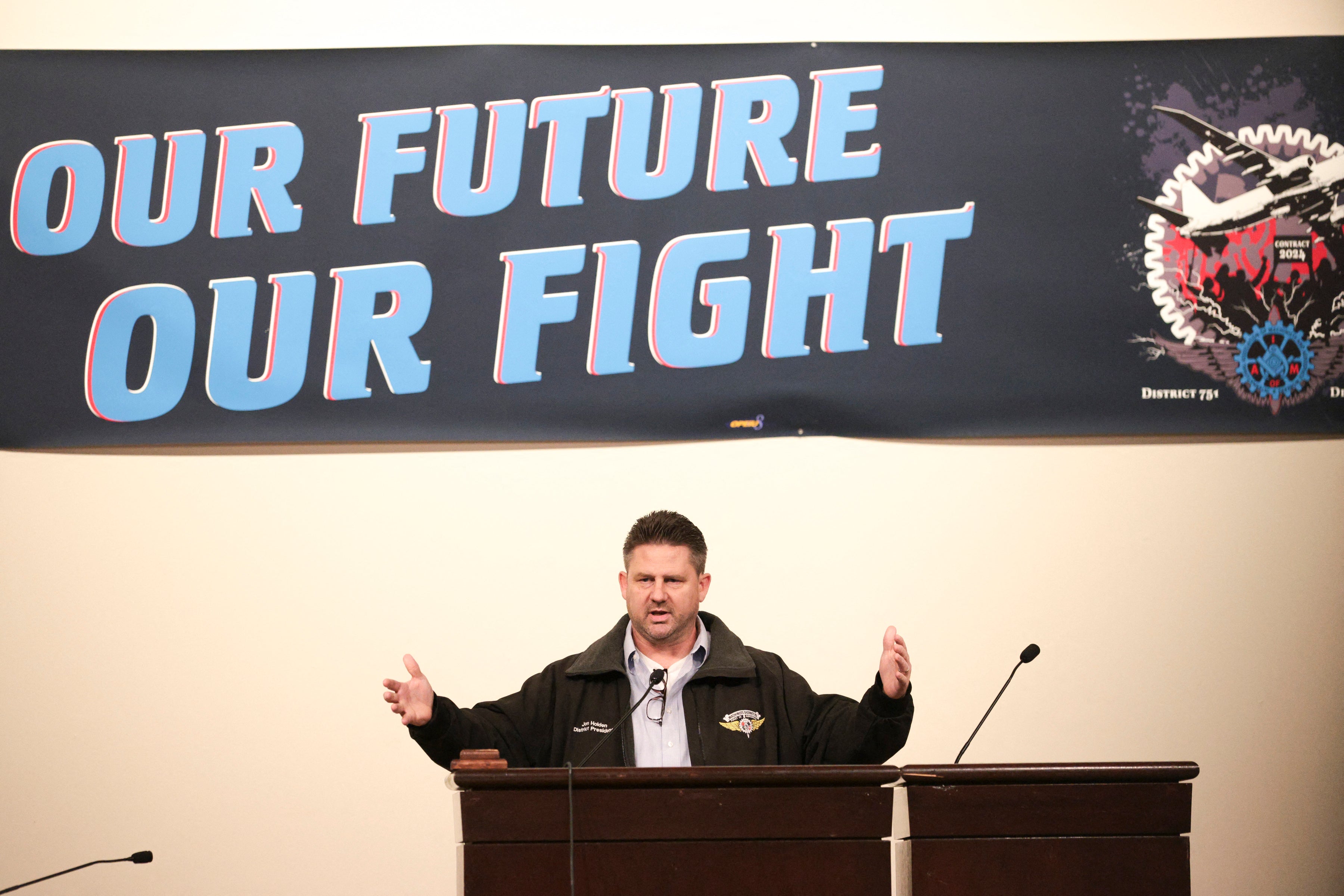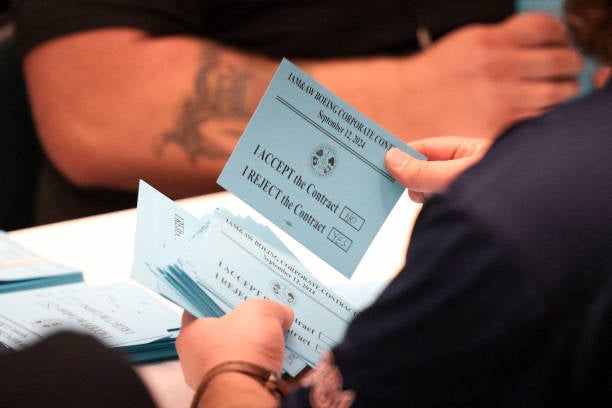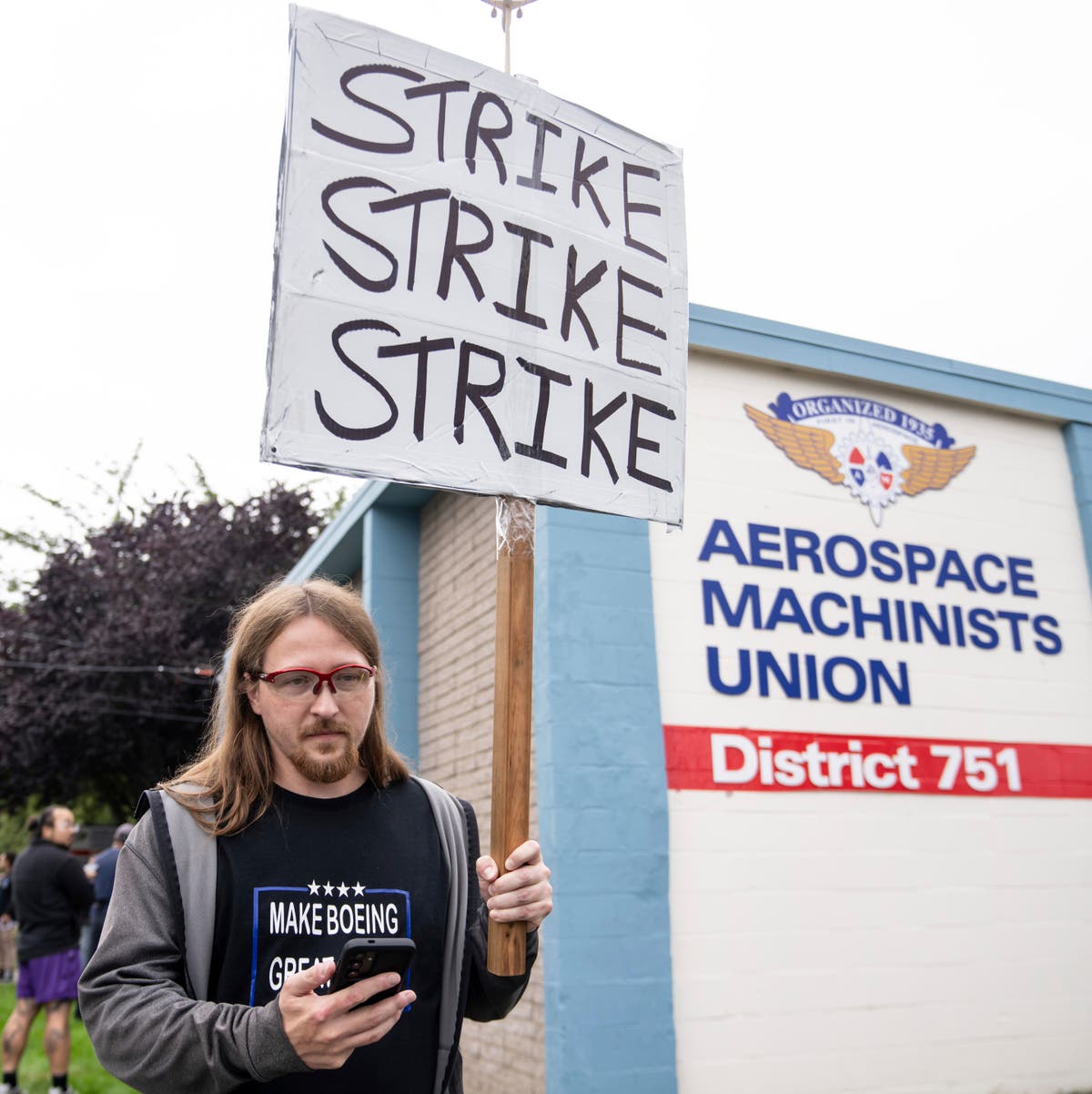Boeing‘s USWest Coast factory workers voted to strike over pay starting midnight on Friday, halting production of the planemaker’s strongest-selling jet amidst output delays and debt struggles.
The strike comes after 96 per cent of workers voted in favour of a walkout, marking their first strike since 2008 coming just weeks after new CEO Kelly Ortberg took the helm to restore faith in the planemaker after a door panel blew off a near-new 737 MAX jet mid-air in January.
The strike involved around 30,000 workers in the Seattle and Portland areas, who rejected the company’s offer of a 25 per cent wage increase, $3,000 signing bonus, and a commitment to build Boeing’s next commercial jet in the Seattle area.
The workers, represented by the International Association of Machinists and Aerospace Workers (IAM), were voting on their first full contract in 16 years.
Defying their union leaders’ recommendation, Boeing workers overwhelmingly voted against the contract after the deal fell short of workers’ demands for a 40 per cent pay rise and annual bonus, prompting 96 per cent to vote in favor of a strike and 94.6 per cent to reject the agreement.

Under IAM rules, a two-thirds majority was required to authorise the strike and reject the contract. Despite Mr Ortberg’s last-ditch appeal on Wednesday, workers were already gearing up for a walkout, with some seen carrying “On Strike Against Boeing” placards.
“This is about respect, this is about addressing the past, and this is about fighting for our future,” said Jon Holden, who headed the negotiations for IAM, Boeing‘s largest union, before announcing the vote result.
“We strike at midnight,” he said, as members in the union hall cheered and chanted: “Strike! Strike! Strike!”

Boeing’s negotiations with striking workers will resume “as quickly as possible”, Mr Holden, who declined to predict the strike’s duration or when talks would restart.
The walkout, which began after workers rejected a contract offer, has already seen protests at Boeing factories in the Seattle area, where MAX, 777, and 767 jets are assembled. Boeing shares rose 0.9 per cent on Thursday but have fallen 36 per cent this year due to concerns over safety, production, and debt.
The planemaker have so far not issued a statement on the matter.
A prolonged strike could significantly impact Boeing’s finances, as well as airlines and suppliers reliant on its jets.
Analysts estimate a 50-day strike could cost Boeing $3bn to $3.5bn in cash flow. The 2008 strike lasted 52 days, costing $100m per day in revenue.
Rating agencies S&P Global and Moody’s warn that an extended strike could delay Boeing’s recovery and potentially lower its credit rating, which is already just one notch above junk status.

